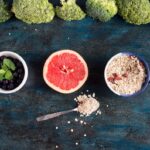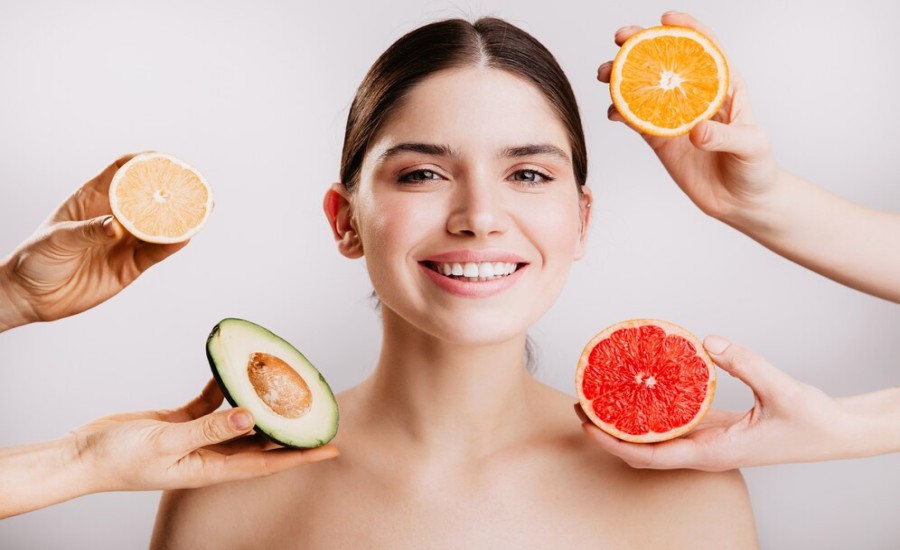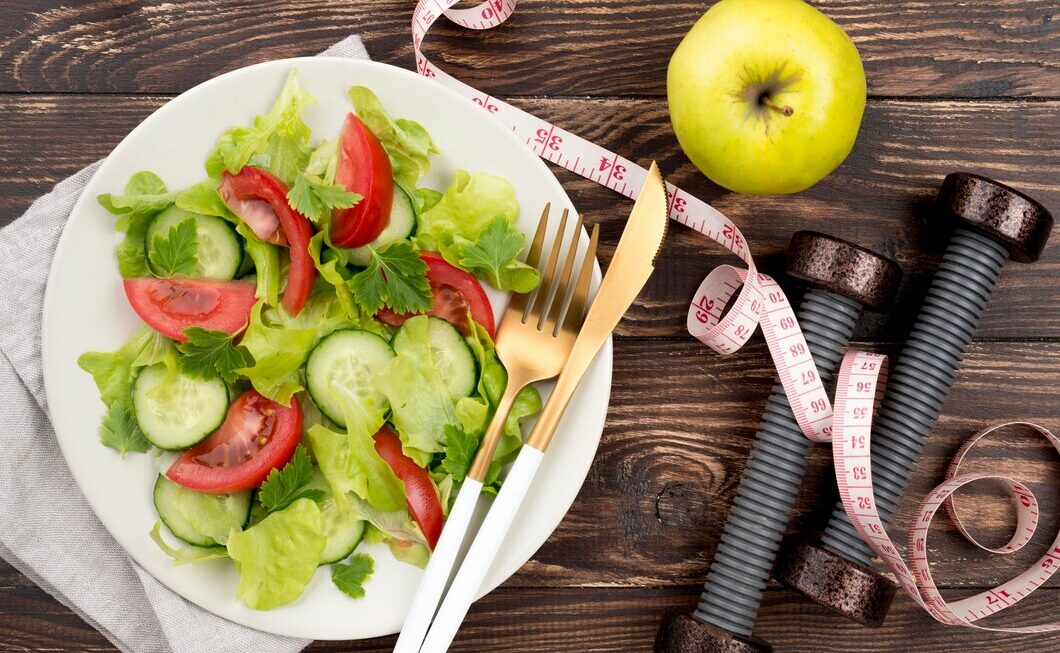The pursuit of radiant, healthy skin—often described as a “glow”—is a common desire, driving multi-billion dollar industries. While topical treatments have their place, growing attention is turning inwards, exploring the profound impact of vegan diet. This analysis delves into the potential connection between a vegan diet and skin health, examining the “vegan glow” phenomenon. We’ll explore this through the lenses of nutritional science, ethical considerations, environmental factors, and practical experiences to understand how plant-powered eating might contribute to ditching dullness and embracing a natural bloom, separating plausible biological mechanisms from mere marketing hype.
Nourish Your Skin from Within: Embrace the Vegan Glow
LENS 1: Nutritional Analysis – Feeding Your Skin from Within
From a nutritional perspective, a well-planned vegan diet is naturally rich in compounds known to support skin structure, protection, and regeneration. The potential for a “vegan glow” is biologically plausible due to several key factors:
- Antioxidant Powerhouse: Fruits, vegetables, nuts, and seeds are packed with antioxidants like Vitamin C, Vitamin E, selenium, beta-carotene (a precursor to Vitamin A), lycopene, and polyphenols. These combat oxidative stress caused by UV radiation, pollution, and metabolic processes, which contributes to premature aging (wrinkles, spots) and dullness.
- Vitamin C for Collagen: Vitamin C is essential for collagen synthesis, the protein providing structure and elasticity to the skin. Citrus fruits, berries, bell peppers, and broccoli are excellent vegan sources.
- Healthy Fats & Inflammation: Plant-based sources of omega-3 fatty acids (ALA from flax, chia, walnuts) and monounsaturated fats (avocados, nuts, olive oil) can help maintain the skin barrier function and potentially modulate inflammation. Reducing intake of saturated fats (higher in many animal products) may also play a role.
- Hydration Heroes: Many fruits and vegetables have high water content (cucumbers, watermelon, celery, oranges), contributing to overall hydration, which is crucial for plump, healthy-looking skin.
- The Dairy Factor: For some individuals, dairy products are linked to acne flare-ups, possibly due to hormones or inflammatory responses. Eliminating dairy, a natural consequence of veganism, may lead to clearer skin for these people.
- Zinc & Selenium for Repair: These minerals, found in legumes, nuts, seeds, and whole grains, play roles in skin healing, cell turnover, and protecting against UV damage.
- Quality Matters: It’s crucial to note: a diet of processed vegan junk food, high in refined sugars and unhealthy fats, is unlikely to benefit skin and could even worsen issues like acne. The “glow” potential lies in whole, nutrient-dense plant foods. Which skin-boosting plant foods could you incorporate more often?
Nutritional Deep Dive: Antioxidants & Skin Photoprotection
Antioxidants work by neutralizing unstable molecules called free radicals, generated by factors like UV exposure. Free radicals damage collagen, elastin, and DNA, leading to wrinkles, sagging, and hyperpigmentation. Dietary antioxidants (like Vitamin E, C, carotenoids from colourful plants, and polyphenols from berries, tea, dark chocolate) are absorbed into skin layers, providing an internal defense system that complements topical sunscreen, helping to mitigate photodamage from within.
Voice of Experience (Dermatologist): “While diet isn’t a cure-all, I absolutely see patients whose skin improves with dietary changes. A whole-food, plant-predominant diet rich in antioxidants, vitamins, and hydration provides the building blocks for healthy skin function and repair. Reducing potential inflammatory triggers like dairy can also be beneficial for acne-prone individuals.” – Dr. Lena Petrova, MD, FAAD
LENS 2: Ethical Framework – Beyond the Surface
Connecting veganism to skin health introduces ethical considerations beyond nutrition. It prompts reflection on beauty standards, the motivations behind dietary choices, and consistency in ethical practices.
- Beauty Standards & Motivation: Is the pursuit of a “vegan glow” purely about aesthetics, potentially trivializing the deeper ethical commitments to animal welfare and environmentalism? While improved appearance can be a welcome side effect, centering veganism solely on looks might dilute its core message.
- Psychological Well-being & Stress: Aligning one’s actions (diet) with deeply held values (compassion, non-violence) can reduce cognitive dissonance and potentially lower stress levels. Since stress is a known trigger for skin conditions like acne and eczema, this psychological ease could indirectly contribute to clearer, calmer skin.
- Cruelty-Free Consistency: For many ethical vegans, the commitment extends beyond diet to avoiding products tested on animals or containing animal-derived ingredients. Choosing cruelty-free and vegan skincare aligns dietary ethics with consumer habits, creating a holistic approach to non-harming. Does focusing on the ‘glow’ aspect potentially distract from the core ethical reasons for veganism?
- Ethical Consumption: Critically assessing marketing claims for both food and skincare, ensuring they align with ethical sourcing and production practices, becomes part of a conscious vegan lifestyle.
Hidden Benefits: Stress Reduction & Skin
The chronic stress hormone, cortisol, can increase inflammation and sebum (oil) production, potentially worsening acne and other skin issues. The sense of integrity and reduced internal conflict reported by some ethical vegans might contribute to lower stress levels, thereby offering an indirect pathway to improved skin health.
Voice of Experience (Ethicist & Cultural Critic): “While personal health benefits are valid motivators, it’s worth examining when ‘wellness’ trends risk co-opting ethical movements. If the ‘vegan glow’ becomes just another beauty commodity detached from animal rights or environmental justice, the movement’s transformative potential is diminished. True alignment involves consistent ethical choices, including scrutinizing how beauty standards themselves are constructed.” – Dr. Samuel Jones, Professor of Ethics
Critical Reassessment: Health Halo or Holistic Health?
Associating veganism primarily with a superficial “glow” risks creating a misleading health halo, suggesting any vegan product or diet automatically confers beauty benefits. A truly ethical approach embraces holistic health, recognizing skin as one aspect of overall well-being influenced by diet, lifestyle, and ethical consistency.
LENS 3: Environmental Scientist’s Analysis – A Healthier Planet, Healthier Skin?
Environmental science offers indirect but relevant links between planet-friendly vegan diets and potential skin benefits, primarily through reduced exposure to pollutants and support for healthier ecosystems.
- Reduced Pollutant Exposure: Industrial animal agriculture is a significant source of air and water pollution (ammonia, hydrogen sulfide, particulate matter, nitrates). While complex, chronic exposure to environmental pollutants is increasingly linked to skin inflammation, aging, and conditions like eczema. A societal shift towards plant-based diets reduces these overall pollution loads.
- Avoiding Hormones & Antibiotics: Concerns exist about residues of hormones and antibiotics used in conventional animal farming potentially impacting human health, including hormonal balance which can affect skin. While evidence for direct skin impact from dietary residues is debated, a vegan diet inherently avoids this exposure route.
- Water Conservation & Quality: Plant-based diets generally have a much lower water footprint. Conserving water resources contributes to healthier ecosystems and potentially cleaner water sources, which indirectly supports overall public health, including skin health.
- Sustainable Practices: Supporting sustainable and organic farming practices (often associated with plant-focused diets) reduces pesticide exposure and promotes biodiversity, contributing to a healthier environment that ultimately supports human well-being. How might the health of our environment be reflected in the health of our skin?
Market Transformation Map Suggestion: A rising trend line showing the parallel growth of the vegan food market and the cruelty-free/vegan skincare market, indicating a consumer shift towards ethical and perceived healthy options in both domains.
Voice of Experience (Environmental Health Scientist): “The connections are often indirect but significant. Lowering agricultural pollution through plant-based diets improves air and water quality, reducing environmental stressors that can exacerbate skin conditions. Furthermore, reduced pesticide use in more sustainable farming systems limits another potential source of harmful exposures.” – Dr. Aisha Khan, Environmental Health Researcher
LENS 4: Everyday Practitioner’s Experience – From Anecdote to Action
For individuals adopting a vegan diet, changes in skin health are a commonly reported experience, driving practical dietary adjustments and managing expectations.
- Anecdotal Evidence: Many vegans report noticeable improvements in their skin – reduced acne, less redness, increased radiance, or a clearer complexion – often months after making the switch. While not universal or strictly scientific, these consistent anecdotes fuel the “vegan glow” narrative.
- Targeted Food Choices: Practitioners often consciously increase intake of foods famed for skin benefits: berries, avocados, nuts (especially walnuts), seeds (flax, chia, pumpkin), sweet potatoes, leafy greens, and staying well-hydrated.
- Navigating Challenges: Realizing that not all vegan food is skin-friendly (highly processed options), ensuring adequate intake of skin-supportive nutrients like Zinc, and having patience (skin changes take time) are common parts of the journey. Sometimes, underlying issues persist regardless of diet.
- Holistic Approach: Experienced practitioners recognize diet is just one piece of the puzzle. Stress management, adequate sleep, appropriate skincare (often cruelty-free), and sun protection remain crucial for optimal skin health. If you eat vegan, have you noticed changes in your skin, positive or negative?
Daily Impact: A ‘Skin-Focused’ Vegan Meal Plan
- Breakfast: Vegan smoothie with spinach (Vit A/C), banana, berries (antioxidants), flax seeds (omega-3), and fortified plant milk.
- Lunch: Large salad with mixed greens, chickpeas (Zinc), cucumber (hydration), bell peppers (Vit C), avocado (healthy fats/Vit E), and pumpkin seeds (Zinc).
- Dinner: Baked sweet potato (beta-carotene) topped with black beans, salsa, and a sprinkle of nutritional yeast. Steamed broccoli (Vit C/Sulforaphane) on the side.
- Snacks: Handful of walnuts (omega-3/Vit E), orange (Vit C/hydration).
- Hydration: Plenty of water throughout the day, perhaps herbal teas like green tea (polyphenols).
Voice of Experience: “When I first went vegan, I wasn’t focused on my skin, but after about six months, I realized my persistent acne had significantly cleared up, and my complexion looked brighter. For me, cutting out dairy and loading up on fruits and veggies made a huge difference. It wasn’t overnight, but it felt like a natural benefit of eating cleaner.” – Maya Singh, Lifestyle Blogger
Alternative Approaches: Beyond Diet
While diet is foundational, achieving optimal skin health often involves integrating other vegan-aligned practices: using certified cruelty-free and vegan skincare, ensuring adequate sleep, managing stress through mindfulness or yoga, and consistent sun protection.
PERSPECTIVE INTERSECTION MATRIX
- Nutrition & Practice: Practitioners (Lens 4) often intentionally incorporate skin-boosting foods identified by nutritional science (Lens 1). Their anecdotal experiences reinforce nutritional hypotheses.
- Ethics & Practice: Ethical motivations (Lens 2) drive the dietary change (Lens 1) that may lead to skin benefits (Lens 4), and also encourage choosing cruelty-free skincare (Lens 4).
- Environment & Nutrition: Reducing environmental pollutant exposure (Lens 3) via dietary choices may contribute to better skin health outcomes explained by nutritional pathways (Lens 1 – reduced oxidative stress).
- Marketing & Ethics: The marketing of the “vegan glow” (related to Lens 2) influences practitioner expectations and choices (Lens 4), sometimes emphasizing aesthetics over deeper ethical or holistic health considerations.
- Nutrition & Environment: Foods rich in skin-protective antioxidants (Lens 1) are often those grown through more sustainable practices (Lens 3), linking personal health with planetary health.
MISCONCEPTION ANALYSIS
| Misconception | Reality |
| Going vegan is a guaranteed cure for all skin problems (acne, etc.). | Diet is only one factor. Genetics, hormones, stress, sleep, and skincare routines play significant roles. Improvements vary greatly between individuals. Veganism isn’t a magic bullet. |
| Any vegan diet will give you glowing skin. | A diet high in processed vegan junk food (refined carbs, sugar, unhealthy fats) can potentially worsen skin issues like acne. Nutrient density from whole plant foods is key. |
| You need to eat collagen or take collagen supplements for good skin. | Collagen is a protein. Your body synthesizes its own collagen from amino acids (plentiful in balanced vegan diets) with the help of cofactors like Vitamin C (abundant in plant foods). |
| Plant-based diets lack fats needed for skin health. | Whole plant foods provide ample healthy fats: Omega-3 ALA (flax, chia, walnuts), monounsaturated fats (avocado, nuts, olives), and polyunsaturated Omega-6s. Avoiding unhealthy trans/saturated fats is beneficial. |
| Skin improvements from a vegan diet happen instantly. | Skin cell turnover and deeper changes take time. Noticeable improvements often take weeks or months of consistent healthy eating. Patience is required. |
KEY TURNING POINTS
- Increased Research on Diet & Dermatology: Growing body of scientific studies linking dietary patterns (e.g., high-glycemic diets, dairy) to acne and inflammation.
- Rise of “Clean Beauty” & Wellness Culture: Emphasis on natural ingredients, transparency, and holistic approaches to health and beauty, creating fertile ground for dietary links.
- Popularization of Antioxidants: Mainstream awareness of the role of antioxidants (from food and skincare) in combating aging and promoting health.
- Growth of Vegan & Cruelty-Free Markets: Increased availability and marketing of both vegan foods and certified cruelty-free/vegan skincare products, making the lifestyle more accessible and visible.
- Influencer & Celebrity Endorsements: High-profile individuals sharing positive experiences with vegan diets and their impact on skin health, amplifying the “vegan glow” narrative.
SYNTHESIS & RECOMMENDATIONS
The concept of a “vegan glow” is more than just wishful thinking; it’s rooted in plausible nutritional science. A well-planned, whole-food vegan diet delivers an abundance of skin-supportive nutrients—antioxidants, vitamins (especially A, C, E), minerals, healthy fats, and hydration—while potentially reducing exposure to dietary triggers like dairy and excessive saturated fats.
While not a guaranteed fix for all skin woes, as genetics and lifestyle factors play crucial roles, adopting this way of eating provides the internal building blocks and protective compounds for healthier, more resilient, and potentially more radiant skin. The ethical alignment and potential environmental benefits add further layers to this holistic approach.
True radiance comes from overall health, which a nutrient-dense vegan diet strongly supports.
Recommendations:
- Prioritize Whole Plant Foods: Emphasize colourful fruits and vegetables, legumes, whole grains, nuts, and seeds.
- Hydrate Consistently: Drink plenty of water throughout the day.
- Include Healthy Fats: Incorporate sources like avocado, nuts, seeds (flax, chia), and olive oil.
- Ensure Key Nutrients: Pay attention to Vitamin C, E, A (via beta-carotene), Zinc, and Selenium sources.
- Limit Processed Foods: Minimize intake of sugary drinks, refined grains, and highly processed vegan snacks.
- Be Patient & Holistic: Allow time for dietary changes to reflect in your skin, and combine diet with good skincare, sun protection, sleep, and stress management.
- Consider Cruelty-Free: Align your skincare choices with vegan ethics by opting for cruelty-free and vegan products.
FURTHER AREAS OF EXPLORATION
- The Gut-Skin Axis: How Vegan Diets Influence Gut Microbiome and Skin Health
- Specific Phytonutrients and Their Role in Skin (Lycopene, Lutein, Resveratrol)
- Managing Inflammatory Skin Conditions (Eczema, Psoriasis, Rosacea) with Plant-Based Diets
- Impact of Vegan Diets on Hormonal Acne
- DIY Vegan Skincare Recipes Using Natural Ingredients
- Navigating Vegan & Cruelty-Free Skincare Labels and Certifications












